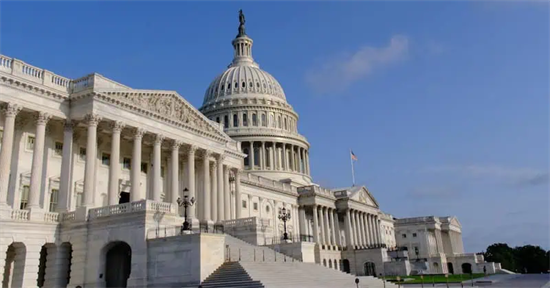In The News
New Law Targets Waste In Federal Office Space UseLegislation tackles federal government’s inefficient use of office space, gets workers back in the office, cuts costs.
Washington,
January 8, 2025
Tags:
Transportation
Late last week, President Joe Biden signed into law legislation that will tackle the federal government’s inefficient use of its office space, get federal workers back in the office, and cut costs. The legislation is part of S. 4367, the Thomas R. Carper Water Resources Development Act of 2024, which the House of Representatives and Senate both approved in December. It includes provisions to reform the General Services Administration (GSA), the agency that owns and operates a significant portion of the federal government’s real estate portfolio. These approved reforms include:
“The GSA reforms now signed into law focus on improving our management of federal real estate and have the potential to save the taxpayer billions of dollars by setting benchmarks for space utilization, directing the sale or consolidation of unused space, and strengthening congressional oversight of federal building projects,” said Transportation and Infrastructure Committee Chairman Sam Graves (R-MO). “I appreciate the work of the Transportation and Infrastructure Committee Members who led on these issues throughout the 118th Congress and introduced legislation to help shrink the size of the federal footprint, reduce hurdles to eliminating unused space, and improve the security of our federal buildings.” Previous Federal Office Space LegislationIn March 2024, the House passed the Utilizing Space Efficiently and Improving Technologies (USE IT) Act of 2023 (H.R. 6276), legislation that sets space occupancy standards to incentivize federal workers to return to the office or lose office space. The bill requires the GSA and the OMB to implement a standard methodology of measuring occupancy and utilization of public buildings and directs the disposal of unused space. This legislation was introduced in November 2023 by Economic Development, Public Buildings, and Emergency Management Subcommittee Chairman Scott Perry (R-PA) and was approved by the T&I Committee in December 2023. The USE It Act requires the heads of federal agencies to submit a report to Congress that includes the actual utilization rate of each building in the agencies’ portfolios, along with the methodology for calculating that rate. Based on those reports, the bill further requires the GSA and OMB to ensure that no building utilization rate falls below 60 percent and, if it does, take steps to reduce or consolidate that space. Under the bill, GSA’s Capital Investment Program must prioritize projects in public buildings where actual utilization is higher than 60 percent. Lastly, H.R. 6276 mandates that GSA and OMB submit a report to Congress that includes a plan to consolidate department and agency headquarters in the National Capital Region, leading to building utilizations of 60 percent or more. “I want to thank Subcommittee Chairman Scott Perry for introducing this important legislation and leading the broader effort to save the taxpayers money by identifying and unloading underutilized federal office space,” commented Chairman Graves. “This bill will allow us to better measure occupancy and utilization of public buildings, identify opportunities for consolidation, and determine federal buildings that are no longer needed.” The USE IT Act is part of the Transportation and Infrastructure Committee’s ongoing efforts to identify wasted federal office space and cut costs. A hearing to examine federal office space utilization and discuss a GAO report showed the majority of agencies reviewed during a three-week sample period across January, February, and March of 2023 used 25 percent or less of their headquarters buildings’ space. At that time, the House approved a number of other measures, including an additional bill sponsored by Chairman Perry, the FASTA Reform Act of 2023 (H.R. 6277), to encourage the federal government to identify and sell unused properties for the benefit of taxpayers. |

